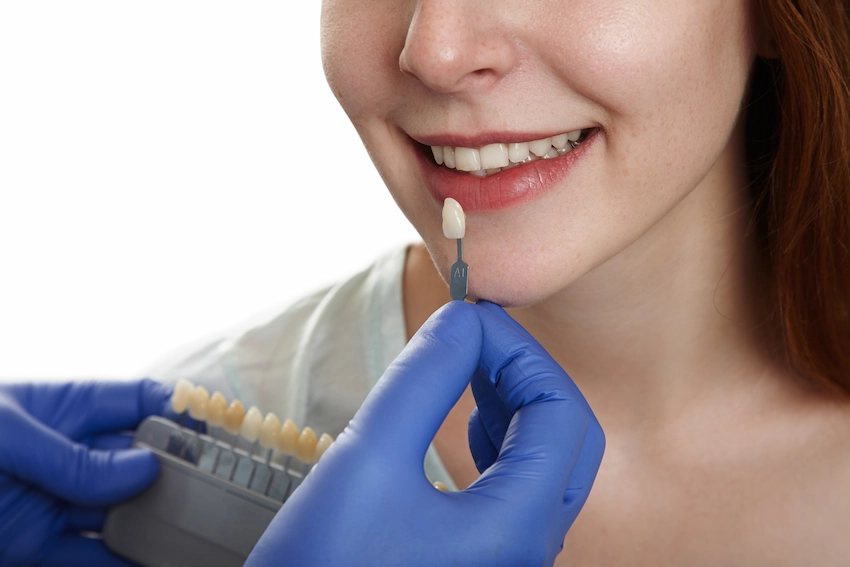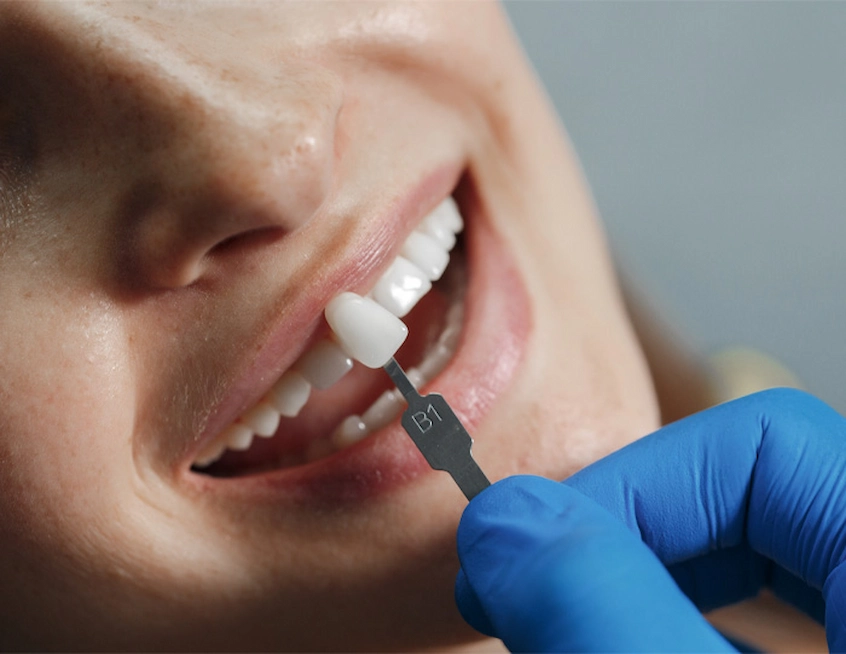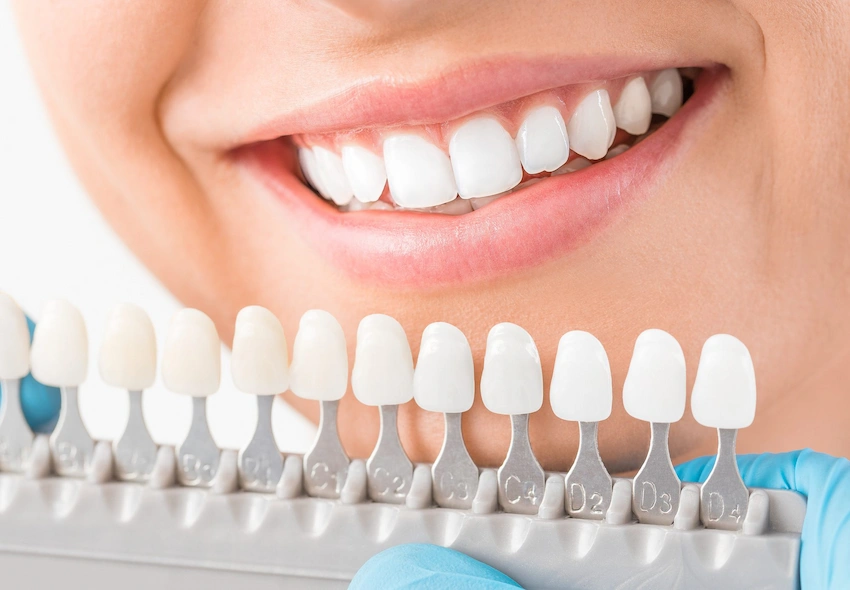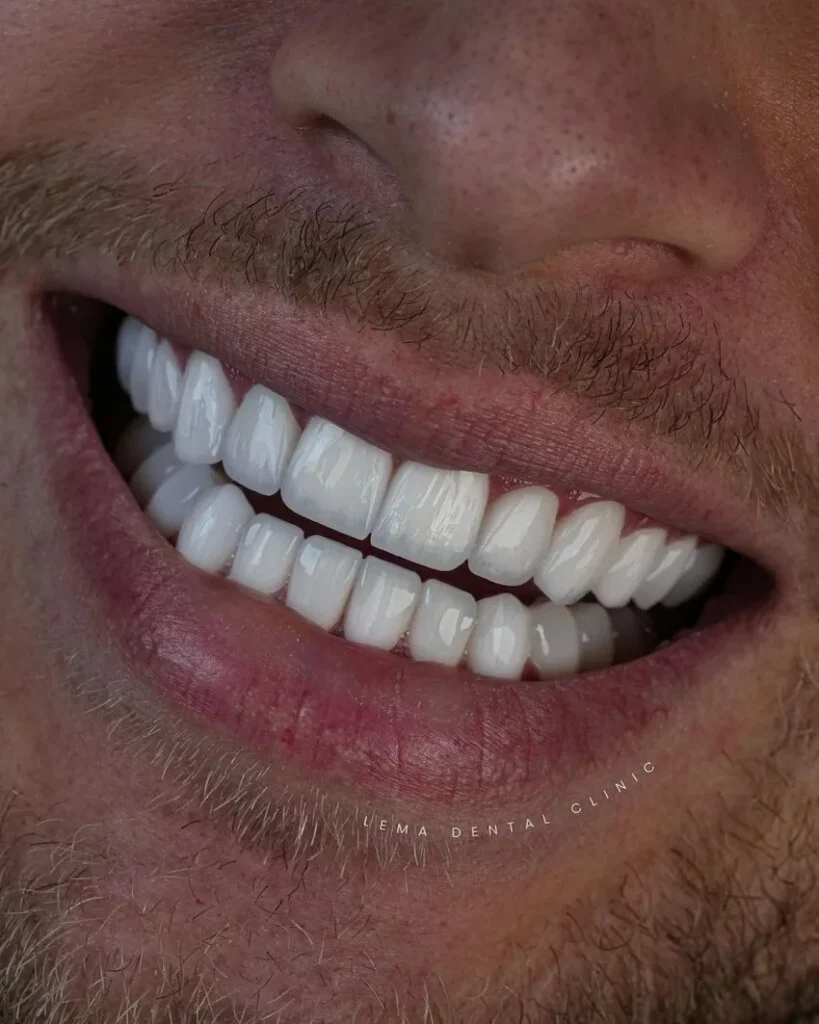🦷Tooth Crown Surgery: What To Expect

The treatment of a tooth with a crown is a step-by-step process comprising the giving of a crown after making the tooth ready, a dentist taking the right impression, and then putting a temporary crown. Such a procedure subsequently provides a final crown, which is not only beneficial in giving the tooth the needed shape and function but also in improving the appearance. One may expect discomfort and some time for healing.
By understanding the procedure, the name of this dental procedure may seem niche and peculiar. However, tooth crown surgery is indeed an orchiectomous operation in the dental world and can be the best way to go if you would like to boost your oral health. A conversation with the dentist about what to expect and the things to bring and remember will not only provide peace but also make the process smooth and easier for you. The origin to the destination in this article can not only outline the steps you need to go through, but also the tips and thoughts that are very crucial.
Introduction to Tooth Crown Surgery
The reshaping of the tooth crown surgery is a dental operation that deals with restoring the soundness, saving the figure, and reducing the number of teeth that have improper structure or are affected by caries. Through the period of operation, a tailor-made crown has put over the injured tooth by the dentist; the tooth is thus fully wrapped up and sheltered against the harmful effects of further weathering. The operation aims at improving the beauty of the teeth, facilitating proper mastication, and guaranteeing prolonged retention of the teeth.

Moreover, a dentist’s guidelines for dental crowns will refer to the usage of these appliances when there are indications such as severe abrasion, the presence of large cavities, and after the removal of the tooth pulp. Such a process can be a reason for the patient making the right decision about their dental health and well-being. Is there something that you would like to know about the process and the importance of the matter, which can help you make the right choice of a good recommendation of what to do with your teeth?
Benefits of Getting a Tooth Crown
Receiving a tooth crown is very beneficial for dental wellbeing because it has advantages that not only support teeth but also contribute to the wellbeing of the body. The critical advantages are:
- Enhanced Protection: They stop decay from occurring and the teeth from breaking even more.
- Improved Aesthetics: Crowns can be created to blend with the natural color and shape of the teeth, thus making your smile look more beautiful.
- Restored Functionality: The crown will help you to eat and speak more comfortably, therefore, the normal dental function is regained.
- Durability: The crowns are made of strong materials and the same time long-lasting, thus providing a solution that is dependable to the damaged tooth.
- Preventive Care: Through the coverage of imperfect teeth, crowns are useful in keeping away extra extensive dental work that will be required in the future.
Preparing for Tooth Crown Surgery

Preparing for tooth crown surgery involves a number of vital steps that are to be followed so as to have a smooth and successful operation. First and foremost, you should arrange a consultation with your dentist to talk about your specific case and any objections raised by you have raised. They will inspect the condition of your tooth and give a verdict on whether to do a crown or not. This appointment is a situation where they can make use of diagnostic imaging like X-rays to assist in the clear vision of the tooth and its root, should they choose this option. Before your surgery, there are some things you should do to get ready:
| Preparation Tips | Details |
| Inform Your Dentist of Medical History | Communicate all your health conditions or medications you are taking to your dentist. This will help them evaluate the risks that you carry. |
| Follow Dietary Instructions | Be alert, so if the anesthesia makes it necessary for you to fast for some hours before the surgery, you will be able to keep to the instructions given without any challenges. |
| Arrange Transportation | If you are to receive some form of sedation, then ensure that someone will be available to drive you back home, as it will not be safe for you to drive in the post-operative period when groggy. |
| Practice Good Oral Hygiene | Be observant about the cleanliness of the mouth while maintaining oral hygiene before the surgery, to eliminate the chances of getting an infection through the surgery. |
The Process of Surgery: The Task of the Surgeon in the Process
In the process of the tooth crown surgery, the dentist follows specific processes that involve preparing your tooth and placing the crown. Here’s a detailed example of the steps:
| Step | Description |
| Administer Anesthesia | Initially, as a dentist, you can be sure that the local anesthetic method that your dentist uses will be a painless one to ensure the best experience of the patient with the procedure. |
| Prepare the Tooth | With extreme care, the dentist will eliminate only the decay and also redesign the tooth to have a boost on the crown. (It may involve some drilling) |
| Take Impressions | A replica of the tooth that has been prepared along with its adjacent teeth will be created to produce a unique crown tailor-made and perfectly fitting the patient. |
| Place Temporary Crown | During the time your new crown is being made, a temporary crown will be put on your prepared tooth to serve as a cover. |
| Schedule a Follow-Up | Finally, the dentist will appoint a date for your follow-up visit, where your permanent crown will be placed in your mouth. |
Recovery Process and Aftercare

The healing of the teeth after the crown surgery is a must to make the treatment a success. At first, there may be some discomfort and swelling, but this will subside naturally within a few days. To ensure you get well soon, follow these crucial aftercare tips:
- Request some moments where you are resting as much as possible within the first 24 hours of surgery to allow for faster healing of the body.
- Place the ice pack on the outside of your cheek so that you can reduce the pain from an injury that lasts for just a short period.
- Follow your doctor’s advice on how to take painkillers to get rid of the pain efficiently.
- Do not eat hard, chewy, or sticky food, and definitely, say so for a week after the procedure, to avoid damaging the new crown.
- Instead of giving up your oral hygiene habits, take care while cleaning around the surgical site until it heals completely.
- Make sure to keep your appointment with your dentist, as that’s recommended to make sure that you are healing properly.
Risks and Complications to be Aware of
- Even if surgery on a tooth crown is pretty safe in most cases, one must be aware that problems and complications could still occur. The awareness of complications will assist you in doing something about them in a more proactive way. Some common complications include:
- In the case of an infection at the surgical site, taking antibiotics will be the treatment solution, which might be required.
- Some people are sensitive to anesthetics or the materials used when making a crown, and they could develop allergic reactions due to this.
- One might feel temporary or continuous hot and cold sensations in the tooth may follow the procedure of the tooth being crowned with a temporary crown.
- The imperfections in the size and shape of the crown result in discomfort and discomfort and may even require treatment with tin.
- Very often, either due to the dentist’s mistake or when the tooth, together with the surrounding tissue, is affected, during the operation, the adjacent teeth and the gingiva suffer.
During the recovery process, in case you identify any unusual symptoms such as too much pain, continuing swelling, or signs of infections in the mouth area, immediately find your dentist’s office and get help.
FAQ: Tooth Crown Surgery: What To Expect
A tooth crown is a custom-made cap that covers a damaged or decayed tooth to restore its shape, size, strength, and appearance. You might need a crown if you have a large cavity, a broken tooth, or after root canal treatment, or to support a dental bridge.
During the procedure, your dentist will first numb the area around the affected tooth. They will then reshape the tooth to fit the crown, take impressions, and place a temporary crown while the permanent one is being made. The entire process typically takes about 1-2 hours.
Most patients experience little to no pain during the procedure due to local anesthesia. After the numbness wears off, some discomfort may occur, but it can usually be managed with over-the-counter pain relievers.
Recovery time can vary, but most patients can resume normal activities immediately after the procedure. Any initial sensitivity or discomfort typically subsides within a few days. Your dentist will provide specific care instructions to ensure proper healing.
Dental crowns can last anywhere from 5 to 15 years, depending on the material used, the location of the crown, and your oral hygiene practices. Regular dental check-ups and good oral care can help extend the lifespan of a crown.




